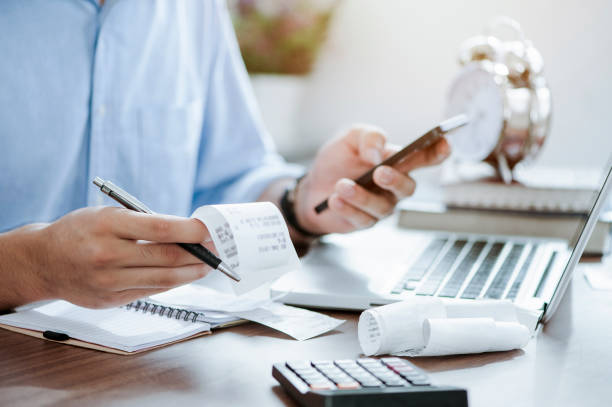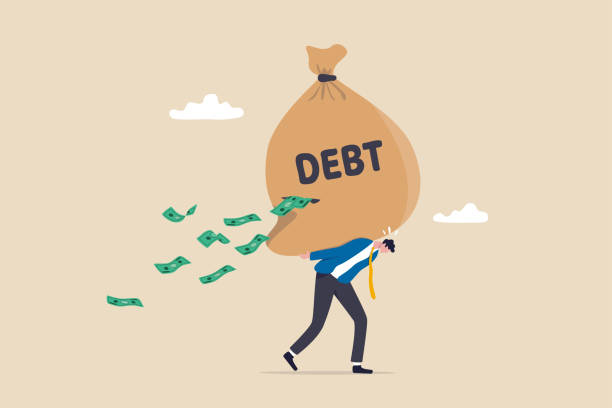Learning debt management is a necessary need and a specific skill required to be able to lead a healthy financial lifestyle. Debt is often stressful and negatively affects your lifestyle. But creating a debt repayment plan and sticking to it can change that.
1. Take control in all situations
Starting today, make getting rid of debt by paying it off your top priority. The longer you fall behind on debt payments, the more difficult it will be to control, especially as interest and late fees accumulate. Start by making a list of your current debts and loans. Include the amounts, payment due dates, interest rate, late fees, and type of debt, such as a credit card, personal loan, etc. If you have borrowed from a family member or friend, record that as well.
2. Not all debt is the same
There are different ways to deal with debt. You can start by paying off loans with a lower value, all the way up to those with larger amounts, and this will help you arrange the matter and make it less stressful for you. But the best strategy is to start with the highest interest rate because this will save you the most money by reducing the amount you spend on interest.

Credit cards usually carry the highest interest rates, so it is recommended to get rid of their payments first. It is advisable to use any remaining amounts to make minimum payments on remaining debts to avoid further growth.
3. Contact your bank
It is recommended to contact your bank and request a debt rescheduling so that all your current debts, such as credit cards or personal loans, can be restructured with different banks with modified repayment terms and a longer term of up to 84 months. You will also be able to request debt consolidation, through which all receivables are combined into one personal loan with modified repayment terms and a longer term.
Personal loans usually carry a lower interest rate than credit cards. You can also try a balance transfer to move some of your high-interest credit card balances to a card with a lower interest rate. In addition to all this, you will have to carefully read the terms and conditions to be sure of the duration of the low-interest rate.
4. Connect with your acquaintances
The drain on money caused by an increasing interest rate is one of the biggest reasons why debt increases in value over time. Therefore, you should avoid borrowing more money to pay for your daily expenses in any way, but if necessary, reaching out to friends or family to pay off high-interest debts may be a good idea to prevent further draining your money. Here we advise you to enlist the support of your friends and family members to help you maintain a frugal financial situation.
5. Completely stop using your cards
Trying to pay off your current debts while continuing to spend and borrow will put you in a never-ending spiral. It’s time to change the habits that have led you into debt by avoiding using your credit card altogether.
6. Modify your lifestyle
Think of every way you can raise more money to pay off your debt. Set a strict budget and lower your cost of living as much as possible to free up more money to pay off your debts. Rent is one of the biggest costs, so consider moving to a smaller house or another neighborhood.
Review your credit card bill carefully to check for any overage charges or forgotten subscriptions. Another useful way to avoid waste is to allocate a separate envelope at the beginning of each month for expenses related to daily purchases (such as food, groceries, or fuel). You will notice when you see and use your cash amounts if you are spending too much.
7. Get extra income
An additional source of income can help you make more money in a shorter time. Ask yourself if you would be able to generate additional income among your neighbors or acquaintances by taking up a hobby, such as carpentry, cooking, or baking cakes. Meanwhile, take a look at some forgotten items in your home or wardrobe that you can sell and join the bidding movement that encourages sustainable style.
8. Have faith in your goals
Being free of debt is truly a relief like no other. While you will feel difficult while dealing with debts, always remember the result you seek, and constantly pay attention to unnecessary expenses that may delay your reaching your goal. You will find that step by step, you are beginning to regain control of the situation and be free of your debts.
FAQs
1. How do I get started turning my debts around?
Exercise debt repayment East and good debt management West. Make a table of all your outstanding claims. Include sums, due dates, rates of interest, and type of debt. Don’t be too strict with yourself, but focus on reducing interest expenses first, and pay off debts with the highest interest rates first.
2. How can I restructure and handle my debts better?
Go to your bank to find out about possible options for debt rescheduling, or debt consolidation. Such may include restructuring debts with terms of repayment adjusted and having a longer duration. Have high-cost debt on your credit card? Perhaps you should transfer uncertain balances to lower rates, or choose a balance transfer.
3. Why is it advised then that we should start by repaying debt with the highest interest rate?
The more money you can then save out of interest, the more you reduce the debt burden. Therefore it is best to begin with debts with the highest interest rates. Credit cards in particular charge high interest rates. Therefore, it is best to pay off such cards first.
4. How can I get friends and family involved in the debt?
See that you obtain the cooperation of your spirited friends and family so as to maintain your salvageable economic circumstances. If absolutely necessary, you may want to contact them for help on footing the interest on high interest rate debts, otherwise you’ll end up with even more serious financial woes.
5. Is it sound to read the end of debt payment as the beginning of no more credit card use?
Of course. When struck by debt, people should put down their credit cards altogether. Heaping up debts while trying to repay them, and just borrowing and spending regardless, can result in a cycle of constant indebtedness.
6. Which is the better way of going about your daily life in order to pay off the debt more quickly?
Change and improve: modifying one’s lifestyle to find more money to repay debt. If it’s that serious, don’t make yourself ill; just lie on a low bed alone in the corner eating crab apples by the pound. Set a stiff budget, economize on your living expenses, and ask around about renting a smaller house or moving to a smaller neighborhood. Always keep your budget under control, carefully review the smaller expenses you incur every day, and only spend on what is necessary not to spend beyond your means.

